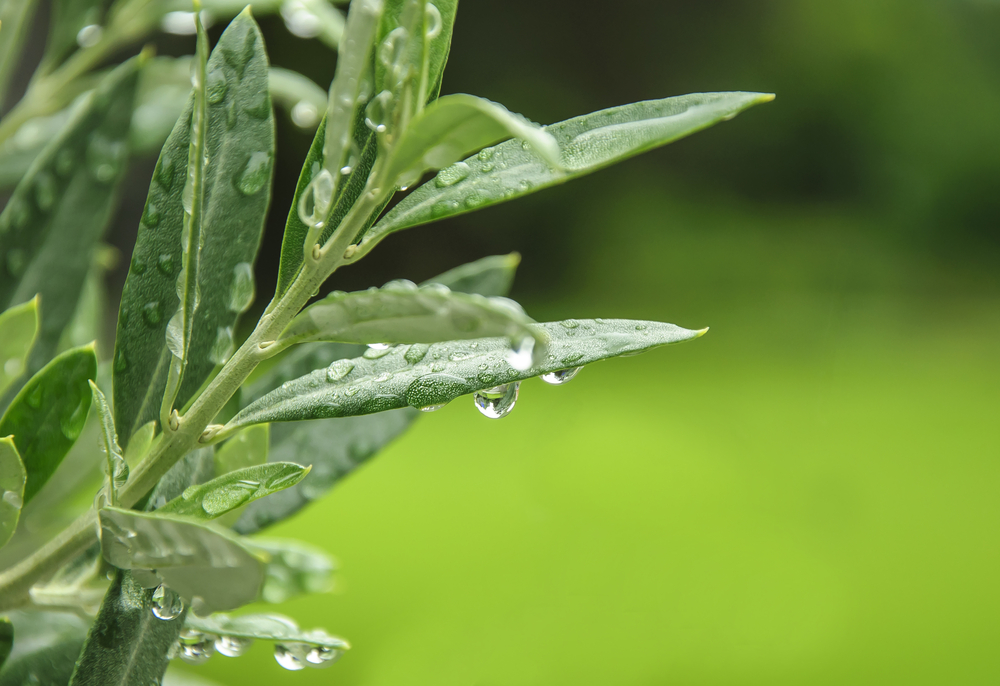
Supplementation with olive leaf extract, at 250 mg or 500 mg twice daily for five days, in addition to conventional care, significantly reduced body temperature, pulse rate, respiratory rate, and c-reactive protein levels in a placebo-controlled study of 150 patients hospitalized with acute Covid-19.
Compared with the placebo, the olive leaf extract also increased oxygen saturation, and reduced length of hospital stays by as much as two days, on average.
“Olive tree products had traditionally been used in the Mediterranean region for medicinal purposes. Olive leaves are a rich source of phenolic compounds, for instance, oleuropein, verbascoside, and hydroxytyrosol. These compounds have anti-inflammatory, antioxidant, antibacterial, and antiviral activities,” wrote lead author Elham Ahmadpour, a researcher at the Lorestan University of Medical Sciences, Khorramabad, Iran.
Multiple Mechanisms
Previous research has shown that compounds within olive leaf extracts can mitigate SARS-related cytokine storms by binding to cytokine receptors (Thangavel N, et al. Front Mol Biosci. 2021). There are also studies suggesting that olive leaf extracts can stimulate phagocytosis of viruses, and potentially block viral attachment to and penetration of host target cells (Moslegh G, et al. Trends Pharm Sci. 2016).
Specific polyphenols found in olive leaves exert direct antiviral activity against human papillomavirus (HPV), hepatitis C virus (HCV), hepatitis B virus (HBV), herpes simplex virus (HSV), and influenza virus type A (Vasquez-Calvo A, et al. Microbiol. 2017; El-Toumy SA, et al. Food Sci Human Well. 2018).
One study, involving 32 high school athletes showed that oleorupein—one of the most plentiful polyphenols in olive leaves—could reduce sick days due to upper respiratory illness by as much as 28% (Somerville V, et al. Nutrients, 2019).
Compounds within olive leaf extracts can mitigate SARS-related cytokine storms by binding to cytokine receptors. There are also studies suggesting that olive leaf extracts can stimulate phagocytosis of viruses, and potentially block viral attachment to and penetration of host target cells.
For their study—the first to assess the effects of olive leaf supplementation in a cohort of Covid patients—Dr. Ahmadpour and her colleagues randomized 150 patients, aged 18 to 72 years, to treatment with a placebo, or olive leaf extract capsules containing 30% oleuropein, at doses of either 250 mg or 500 mg. All treatments were given every 12 hours for 5 days.
The supplements (or placebo) were an adjunct to conventional treatments for Covid-19, which included: dexamethasone (8 mg daily for five days), remdesivir (200 mg on the first day, 100 mg for the next four days), heparin 5000 IU every 8 hours), and supplemental oxygen (6-8 L/minute). A total of 141 patients completed the study.
Strong Clinical Impact
By the fifth day of hospitalization, the patients in the 250 mg olive leaf group showed statistically significant reductions in body temperature (mean difference 0.34 °C), pulse rate (mean difference 5.42 BPM), and respiratory rate (mean difference 1.66 breaths per min) compared to those taking the placebo. Oxygen saturation was significantly higher, by roughly two percentage points, in the low-dose olive extract group than the control group.
In both olive leaf groups the mean length of hospital stay was 6 days, versus a mean of 8 days in the placebo group.
Those taking the 500 mg olive leaf extract supplements showed very similar patterns, and there were no major differences in the effects obtained with the two dose levels.
At both dose levels, the olive leaf extract gave significant reductions in erythrocyte sedimentation rates (mean differences of 13.55 and 14.79 mm/h, for the low and high doses respectively) and c-reactive protein levels (mean differences of 15.68 and 16.28 mg/L, respectively).
Notably, in both olive leaf groups the mean length of hospital stay was 6 days, versus a mean of 8 days in the placebo group.
There were no adverse events associated with the olive leaf extract at either dose level.
Ahmadpour and colleagues acknowledge that their study has some limitations, notably the fact that it excluded patients who required intensive care, and those who had histories of underlying chronic conditions.
While their results may not be entirely generalizable to all patients with acute Covid, the data do suggest that olive leaf extract could be a valuable adjunctive treatment in the context of Covid care.
END







